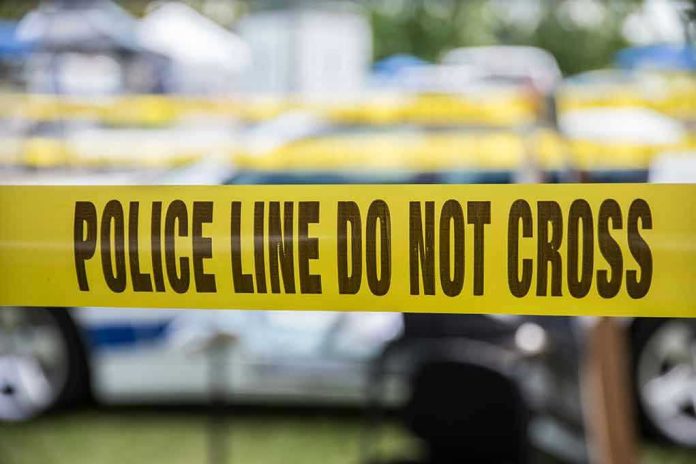
The parents of Ethan Chapin, one of the slain University of Idaho students, finally say they’ve found “big-time closure”—but not because justice was swift or simple, and not because our system worked flawlessly, but because after years of agony, the man responsible won’t see the light of day again.
At a Glance
- Bryan Kohberger pleaded guilty to the murders of four University of Idaho students, avoiding the death penalty but receiving four consecutive life sentences.
- The Chapin family expressed relief at being spared a public trial and the trauma of testifying, calling the result “big-time closure.”
- Kohberger, a criminology Ph.D. student, showed no remorse during the proceedings, according to the family.
- The legal process has ended, providing long-awaited closure to the families and community, though some are disappointed the death penalty wasn’t enforced.
Years of Agony, One Moment of Closure
For nearly three years, the Chapin family has endured what no American family should: endless waiting, media spectacle, and the ceaseless churn of a justice system that so often seems designed to grind down the innocent while protecting the rights of the worst among us. On November 13, 2022, Ethan Chapin, his girlfriend Xana Kernodle, and their friends Madison Mogen and Kaylee Goncalves were butchered in their own home—a scene so brutal it sent shockwaves through the sleepy college town of Moscow, Idaho and the entire country. The killer, Bryan Kohberger, a criminology Ph.D. student from nearby Washington State University, evaded capture for weeks, all while the nation obsessed over rumors, “leads,” and the slow drip of official statements. Families waited. Students feared for their lives. Parents, rightfully, questioned whether their children could ever be safe on any campus again.
The Chapins, like many families shattered by senseless violence, were forced into the spotlight, pressured to relive every detail for a public hungry for answers. As the case dragged on, the system they were told would protect them seemed to move at a glacial pace, with endless legal wrangling and the constant threat that their private grief would be paraded in a courtroom for all to see. Now, finally, with Kohberger’s guilty plea and the promise that he will never walk free again, the Chapins are finally able to begin the long process of healing. As Jim Chapin put it, “I really don’t care what happens to the guy … He’s off the streets. He can’t hurt any more kids.”
The Deal That Divides: Justice or Compromise?
Bryan Kohberger’s plea deal is the kind of outcome that sparks debate in every American living room. On one hand, it spares the families the agony of a drawn-out trial and the grotesque spectacle of cross-examination. On the other hand, it means the man who methodically planned and executed the murder of four young people will never face the ultimate penalty. The death penalty, once the gold standard for heinous crimes, has become a political football, more likely to be punted than enforced in today’s legal climate. For some, this is a relief; for others, it’s yet another example of how the system bends over backward to protect the rights of criminals instead of the innocent. Kohberger, by all accounts, showed no remorse—not during the investigation, not during his plea, and certainly not to the families whose lives he destroyed. Yet, as the Chapins made clear, closure sometimes means accepting what you cannot change and focusing on the future of those left behind.
Even now, the ripple effects are being felt. University communities are questioning what real safety means, parents are more wary than ever, and politicians will no doubt use this case as another talking point in the endless debate over campus security, criminal justice reform, and the death penalty. But for the Chapins, and for every parent who’s ever worried about sending their child off to college, this case remains a chilling reminder that safety is never guaranteed, and justice is never as straightforward as it should be.
What Comes Next for Families and the Community?
With Kohberger’s sentencing scheduled and the legal process winding to a close, the Chapin family says they have no plans to attend the final hearing. Like so many Americans, they are exhausted by the endless grind of the justice system and have chosen to focus on their surviving children and the memory of their son. Their decision to step away from the public eye is understandable—and, in many ways, an act of defiance against a system and a culture that too often turns private grief into public spectacle.
This story is bigger than one family, one community, or one killer. It’s about the values we claim to hold dear—justice, safety, due process—and the reality that, all too often, those values are compromised by bureaucracy, indecision, and the ever-present threat of politicization. For every high-profile case that ends in “closure,” there are countless others where families never get answers, never see justice, and are left to pick up the pieces on their own. The Chapins’ relief is real, but so is their frustration—a frustration shared by millions of Americans who wonder when, if ever, common sense will return to our courts, our campuses, and our culture.













